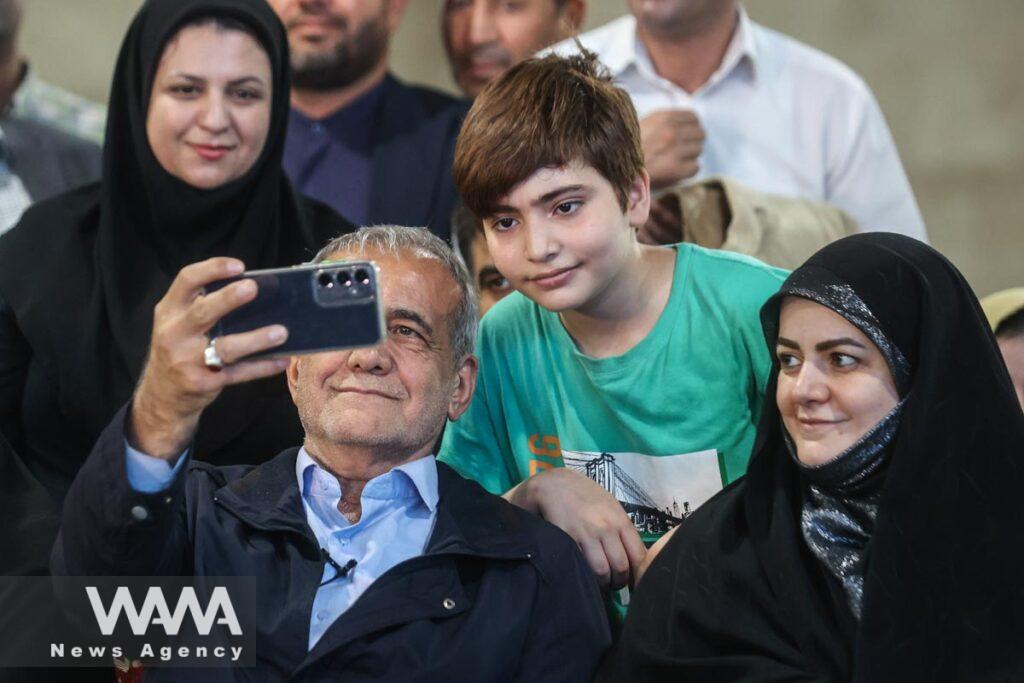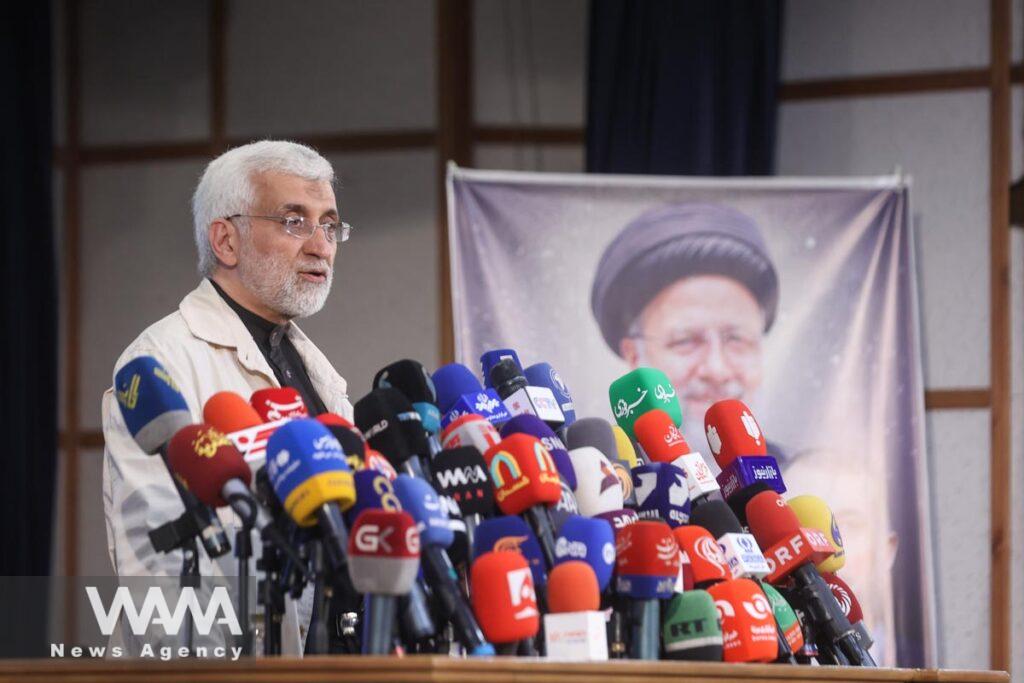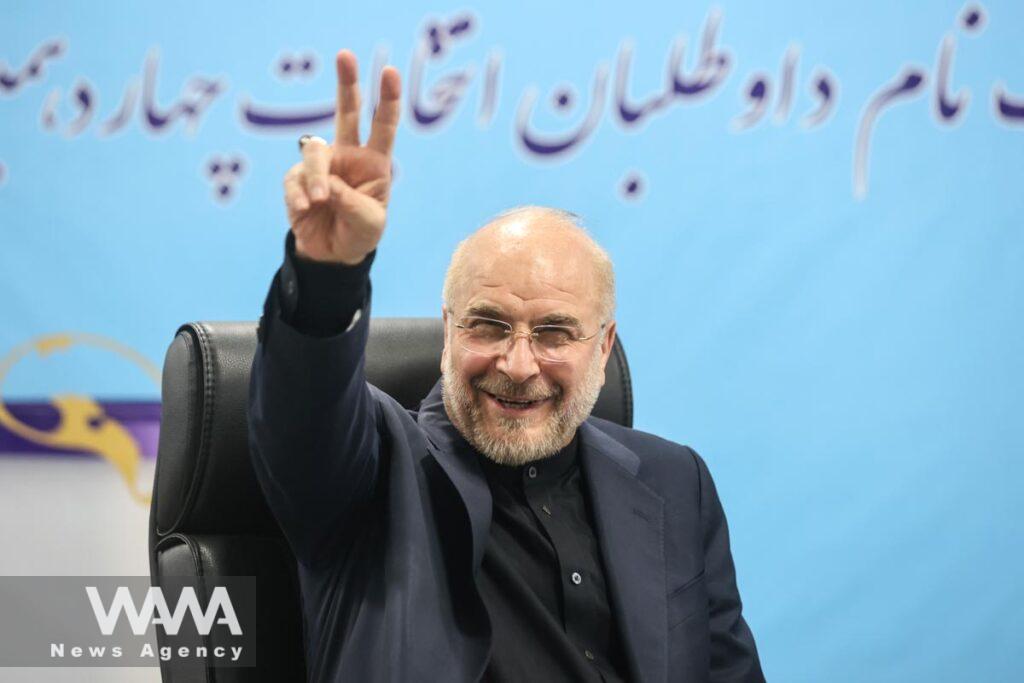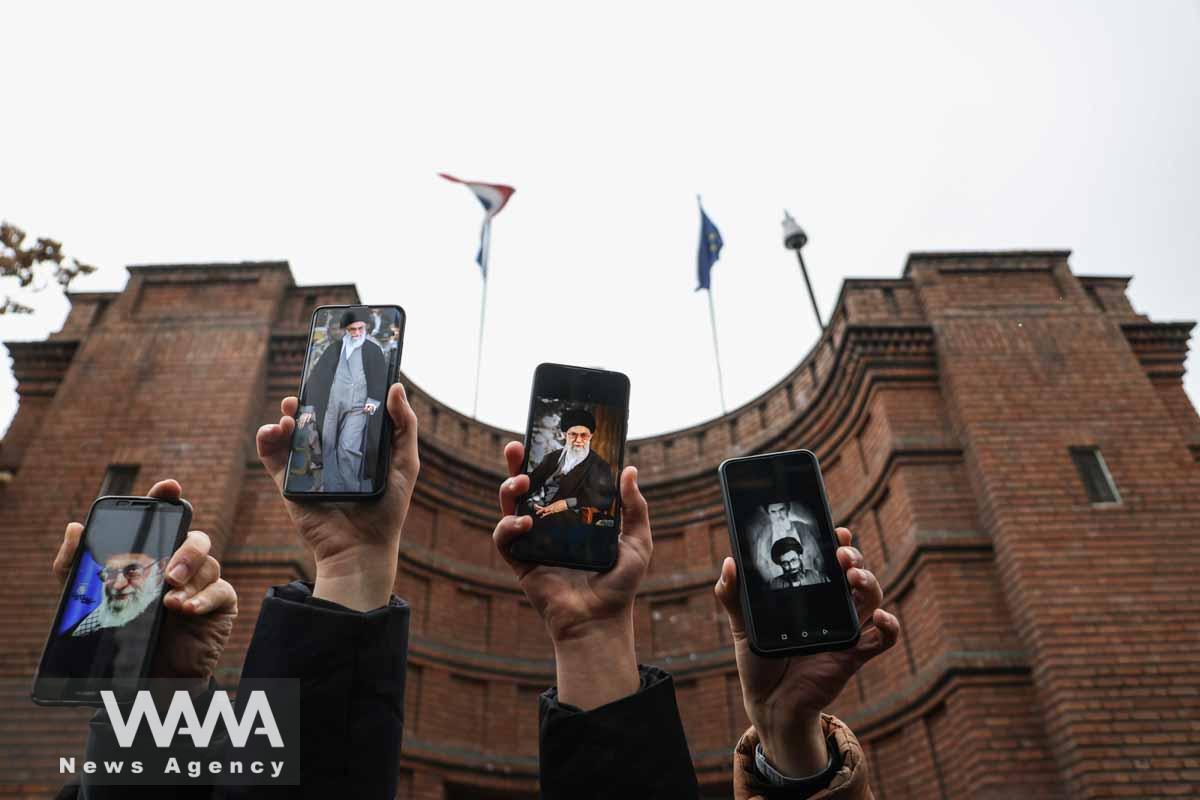Who does Iran’s Leader want as President?
WANA (June 15) – Everyone in Iran and internationally is wondering who Ayatollah Seyyed Ali Khamenei supports as president. Looking at previous statements by Ayatollah Khamenei reveals several criteria about the person he wants as president.
One of the main keywords in the Leader’s speeches is aligning with the ideology of Iran’s revolution. In his own words, the president should work for “the people, not his own pockets, and should work for God.” This criteria, based on what Iranians can see, can be found in Saeed Jalili. No obvious corruption accusations have been made against Jalili or any of his close relatives.
The other two main candidates, Mohammad Bagher Ghalibaf and Masoud Pezeshkian, have unresolved issues in their past. Ghalibaf’s critics accuse him of being an aristocrat due to several events during his tenure as speaker of Parliament.
The most notable event was his family’s trip to Turkey to buy a layette for his grandchild. The place is better known in Iran as “Sismooni Gate” or Layette Gate. Ghalibaf’s critics say his words do not match his actions and slam what they call double standards.
However, there are no rumors about Pezeshkian’s monetary past, and “his hands are clean.” He belongs to the Reformist camp, whose actions, in the eyes of many Iranians, are self-centered and not in line with the Islamic Revolution’s Ideals. In his latest TV interviews, Pezeshkian tried hard to introduce himself as a revolutionary and true follower of the Islamic Revolution’s Ideals. This drew strong condemnations from some of his fellow Reformists who believed in Secularism.

Presidential candidate Masoud Pezeshkian takes a selfie with one of his supporters during a campaign gathering in Tehran, Iran June 14, 2024. Majid Asgaripour/WANA (West Asia News Agency)
In the eyes of Iran’s Leader, the president should seek justice and equality. Ayatollah Khamenei believes that the person who leads the executive branch of government should have grassroots support and not be an aristocrat.
The president should “live among people, live like ordinary people and should get along well with all social classes.” Ayatollah Khamenei has advised previous presidents to “continue provincial visits, talk with people, opening channels to understand the living conditions of ordinary people.” Each of these candidates is trying to portray themselves as someone who understands the sufferings of people in Iran.

Why Do Saeed Jalili’s Fans Consider Him the Best Candidate?
WANA (June 5)—Saeed Jalili’s fans in Iran believe he is the best option for the presidency in the upcoming election. Jalili is identified with the conservative faction. As much as he has fans among the revolution’s defenders, he also has staunch opponents from the reformers’ faction and opponents of the Islamic Republic. His fans argue […]
They attempt to be shown as someone who cares about the living conditions and future of ordinary citizens. However, Iranians consider their backgrounds and previous comments more important than what they say in presidential campaigns.
Pezeshkian was born in a Kurdish town in the West of the country while having Azeri origins and growing up in NorthWestern city of Tabriz. He speaks Farsi with an Azeri accent, and his supporters say that these origins show that he knows Iranians well and understands ethnicities more than other candidates. Some experts say he has a good vote among Iranian ethnic minorities. However, his critics challenge this with Pezeshkian’s previous comments and accuse him of separatism.
Since losing the presidential election to Hassan Rouhani in 2013, Jalili has initiated a team of experts in different fields to actively address what he calls the government’s mismanagement. In one of his latest interviews on national TV, Jalili said, “The shadow government was focused on understanding the country’s problems and their solutions, and there was less time for elite gatherings.”

Saeed Jalili, a former chief nuclear negotiator, speaks at a press conference after registering as a candidate for the presidential election at the Interior Ministry in Tehran, Iran, May 30, 2024. Majid Asgaripour/WANA (West Asia News Agency)
Jalili says that with his “shadow government” and expert teams, he has all the solutions for Iran’s problems and has opened the door for “hundreds of experts, managers, scientists, and academic activists” who were “tired of useless political lobbies and factional ties.” However, his critics say his views on the economy and foreign policy aim to surround Iran with “brick walls.” He is also criticized by the Reformist camp for what they call plans to limit social and civil liberties.
Ghalibaf is a senior Iranian politician whom some call “General” for his years in the military and police force. Others know him as the long-standing mayor of Tehran. In the minds of his supporters, he made great changes in Iran’s police force to provide better services for the people.
They say his role as mayor transformed Tehran and hail his efforts to expand public transport in the city. However, his critics, mainly from the Reformist camp, say he will turn Iran into a military base where the sole commander is Ghalibaf.

Speaker of the Parliament of Iran Mohammad Bagher Ghalibaf registers as a candidate for the presidential election at the Interior Ministry, in Tehran, Iran June 3, 2024. Majid Asgaripour/WANA (West Asia News Agency)
His latest election as speaker of the Parliament is also criticized. Ghalibaf finished fourth in Tehran parliamentary elections, which was seen by some as a response to so many accusations against him. However, the “General” lobbied his way to the crown of the Parliament.
Speculating on whom Iran’s Leader wants as president is a tough job and has little use because of Iran’s clear voting system. Despite some Western claims, presidents in Iran are elected by the people, not the Leader, and this can be seen in the election of previous presidents.
The elected president at times criticized the Leader and sometimes opposed his ideologies and beliefs, but he was still reelected for a second term in office.
By WANA writer

Ahmadinejad and the lost political credibility
WANA (Jun03) – Dr. Mahmoud Ahmadinejad, a significant figure in Iran’s political landscape, served as the country’s sixth president from 2005 to 2013. He has now thrown his hat into the ring, registering to run in the upcoming presidential elections on June 28. He is no longer wearing his famous jacket. He botoxed his […]












